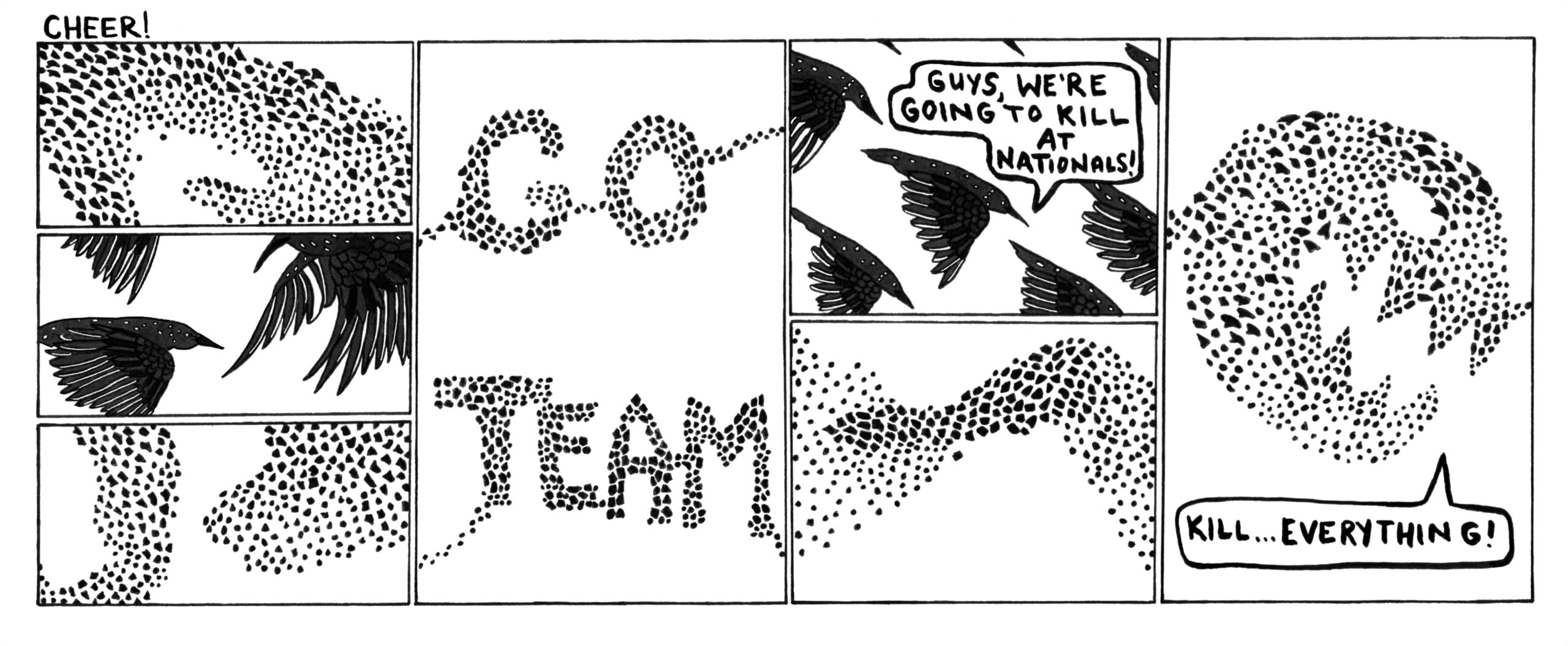Last Wednesday, after a fair amount of confusion and turmoil, I got on a plane, wiped down all the hard surfaces with bleach wipes, and flew to San Antonio for a conference that probably should have been canceled. I say this because of the mostly empty hotel lobbies, the haunted book fair, with its abandoned booths and wide, glum aisles. I say this because ordinarily, when you are flying towards AWP you can look around you at the airport and know with confidence that 60% of the people you see are going where you’re going, to buy books and give talks and drive the local bartenders to distraction.
I felt bad for all the people who’d put in wasted effort, a feeling epitomized by the mariachi band that drifted around the conference center looking for an audience quorum, finding none.
However, I must say, I had a good time. Plenty of my friends were still there, and together we bought a ton of books, ate a ton of tacos. From what I heard, all the remaining panels—and this was certainly true for mine—were extremely well-attended, which makes me wonder (not for the first time) if maybe the usual conference has a few too many panels. San Antonio did not feel frightened or diminished, though I have never been there before so I have little to compare it to. The aura of the city was complete normalcy. I walked along the river path long enough to escape the hordes of tourists and the Disney-esque restaurant-scape, and found myself in a gorgeous park flanked by large houses with elegant landscaping.
One night—and this is the most disease-vector-y thing I did—as I was leaving a reading I’d been part of, I stupidly ordered a car before realizing there was a taco truck right next to me, and was told (reasonably) that no, they could not get me a plate of tacos in 4 minutes. But a guy who was standing there waiting for his food came up to me a minute later, with a pristine plate of tacos, and gave me one. Reader, I ate it, and it was the best taco I had all week.
Just like usual, the conference felt like it took place outside of time. But on this occasion, there were fewer people marooned in that bubble with me, so the movement was slower. We drifted from place to place, offering each other hand sanitizer. I got new author photos taken in half an hour’s time, and they may be the best photos of me I’ve ever seen. I got to spend time with people I’ve previously been mostly internet friends with, and they were all magnificent. I made impulse decisions, and never regretted them.
Now I’m home. I admit, with hindsight, it was perhaps foolish to travel at this time, and it will be easy for me to fall into the practice of “social distancing” given that Dave and I both work from home. The world is giving off the impression of acceleration—towards what? We don’t yet know. Perhaps this will just be a season we live through, which young children will later envy because it sounds like a sleepover party. We never left the house. We had to make a lot of meals from beans, and be creative to keep things interesting.
Or maybe things will be more changed. I heard (or read; I can’t remember) the suggestion recently that America has finally “fallen into history,” and I understand that sentiment. We are seeing the limits of our power. We are seeing how badly mistakes can go, how much lasting fallout we can be stuck with, how twisted the psyche of ourselves and our brethren can become in a state of uncertainty and fear. I am obviously not just talking about the coronavirus.
I hope there is a breath yet to take. I’m not sure that stepping out of history is, or ever really was, an option, but we still have a choice as to how we react to things. This is the truth often uttered in fiction classes: people have needs, they meet obstacles, and then they must respond. The quality of the person is not necessarily in who they were when all they had was a need or a desire. It is in who they become when they meet the obstacle. It is in how they respond.
